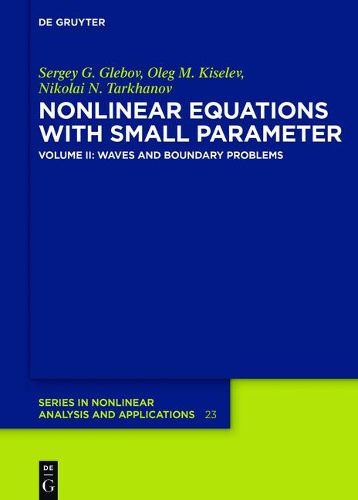Readings Newsletter
Become a Readings Member to make your shopping experience even easier.
Sign in or sign up for free!
You’re not far away from qualifying for FREE standard shipping within Australia
You’ve qualified for FREE standard shipping within Australia
The cart is loading…






This is the second volume of Nonlinear Equations with Small Parameter containing new methods of construction of global asymptotics of solutions to nonlinear equations with small parameter. They allow one to match asymptotics of various properties with each other in transition regions and to get unified formulas for connection of characteristic parameters of approximate solutions. This approach underlies modern asymptotic methods and gives a deep insight into crucial nonlinear phenomena. These are beginnings of chaos in dynamical systems, incipient solitary and shock waves, oscillatory processes in crystals, engineering constructions and quantum systems. Apart from independent interest the approximate solutions serve as a foolproof basis for testing numerical algorithms. The second volume will be related to partial differential equations.
$9.00 standard shipping within Australia
FREE standard shipping within Australia for orders over $100.00
Express & International shipping calculated at checkout
This is the second volume of Nonlinear Equations with Small Parameter containing new methods of construction of global asymptotics of solutions to nonlinear equations with small parameter. They allow one to match asymptotics of various properties with each other in transition regions and to get unified formulas for connection of characteristic parameters of approximate solutions. This approach underlies modern asymptotic methods and gives a deep insight into crucial nonlinear phenomena. These are beginnings of chaos in dynamical systems, incipient solitary and shock waves, oscillatory processes in crystals, engineering constructions and quantum systems. Apart from independent interest the approximate solutions serve as a foolproof basis for testing numerical algorithms. The second volume will be related to partial differential equations.